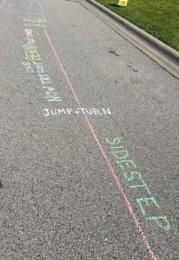Early Language Development
- All Care Therapies

- Dec 20, 2017
- 3 min read

Watching a toddler develop is one of the most incredible things a parent can experience. We marvel at their first steps and anxiously look forward to their first words. The promise of hearing them call us by name and finally expressing their wants and needs keeps us in a state of eager anticipation.
But what happens when those long awaited first words just don’t seem to be appearing? Many parents find themselves asking the question, “Is my toddler experiencing a speech delay or is this normal? Should I be concerned or do some kids just develop at their own pace?” To help shed some light on those questions, the following are some common communication milestones healthcare providers use to determine if a concern exists:
10-14 months: Child babbles and at least one recognizable word emerges, often “dada” or “mama.”
18 months: Child has an expressive vocabulary of approximately 20 recognizable words. These words don’t need to be perfectly enunciated and may not be used all in the same day, but should be recognizable to caregivers and known to have meaning to the child. These could include nicknames for siblings and family members, names of pets, favorite toys, etc.
18-24 months: Child’s vocabulary grows rapidly during this time and may reach approximately 200-300 words by the age of two. Child begins to combine single words into two word utterances or short phrases. If a child is not using at least 50 words expressively and/or combining words by his or her second birthday, then a referral to a speech language pathologist is highly recommended.
It’s best to be proactive if you are concerned at any stage. Early intervention sets children up for greater success as they develop. If you have concerns, a great first step is scheduling your child for a doctor's visit to ensure that hearing and vision are within normal limits. Unidentified hearing loss, chronic ear infections, and even small amounts of fluid on the ears can all be factors in speech and language delay. Some children may still require speech therapy even after these types of issues are addressed, but ruling them out or correcting the problems beforehand ensures that children are able to receive maximum benefit from therapy services.
Once hearing concerns have been ruled out or addressed, a full speech and language evaluation may be recommended. During an evaluation, a speech language pathologist will take a full medical history, including hearing and vision status, conduct a parent interview to determine existing concerns and observations, complete standardized testing in order to compare your child’s communications skills to those of other same age children, and will observe your child playing and interacting to determine current level of communication skill. Following evaluation, speech therapy may be recommended and home recommendations will be provided.
Looking for things you can do to help your child with communication?
Talk with your child about the things you are doing and places you are going. Point to familiar objects that you encounter together and say their names. For example, “I see a car. That’s a red car. It says “vrrooom.” Use simple, but grammatically correct language that encourages your child to imitate.
Expand on your child’s statements. For example, if your child says “dog,” you can respond by saying, “Yes, that is a a big dog.”
Spend time reading to your child and looking at books together every day. Books with large, colorful pictures and single words or simple phrases on each page are ideal for toddlers. Take the time to name and describe the pictures and see if your child can point to pictures that you name. Notice if your child is attempting to imitate the picture names and encourage his or her attempts.
Praise all of your child’s attempts at speech. Often when it sounds like a child is trying to say a particular word, they usually are.
Consider joining a playgroup or daycare setting where your child can talk and socialize with same age peers.
This is an exciting time in your child’s development! Enjoy!




Comments